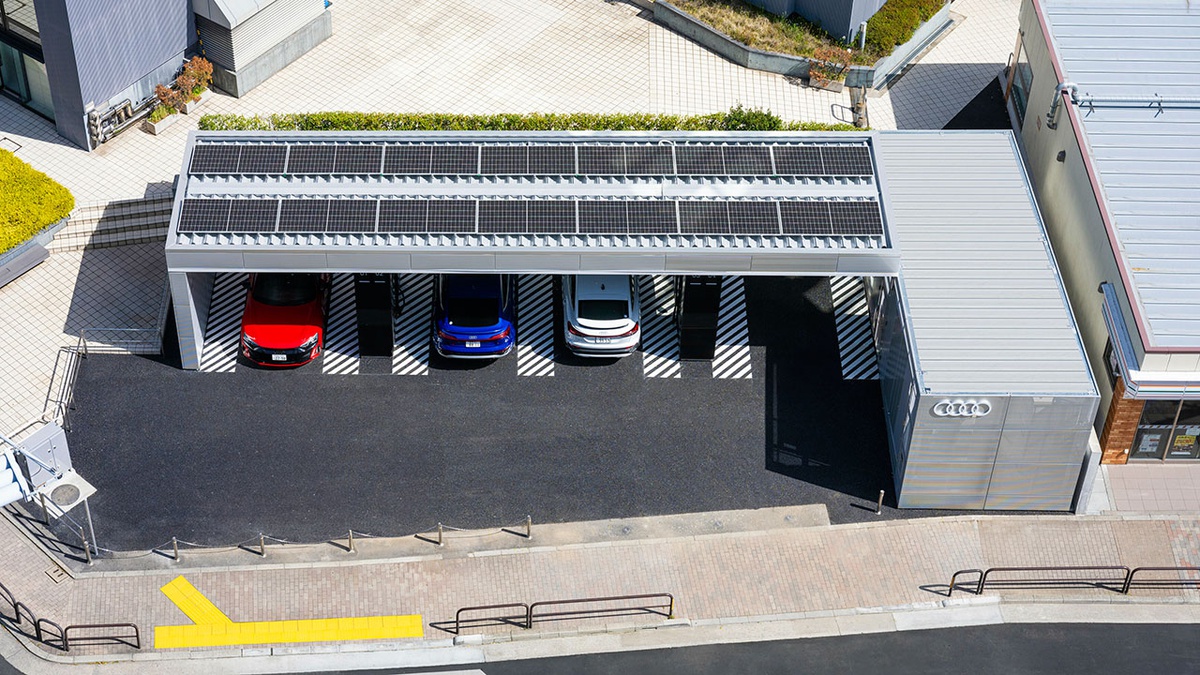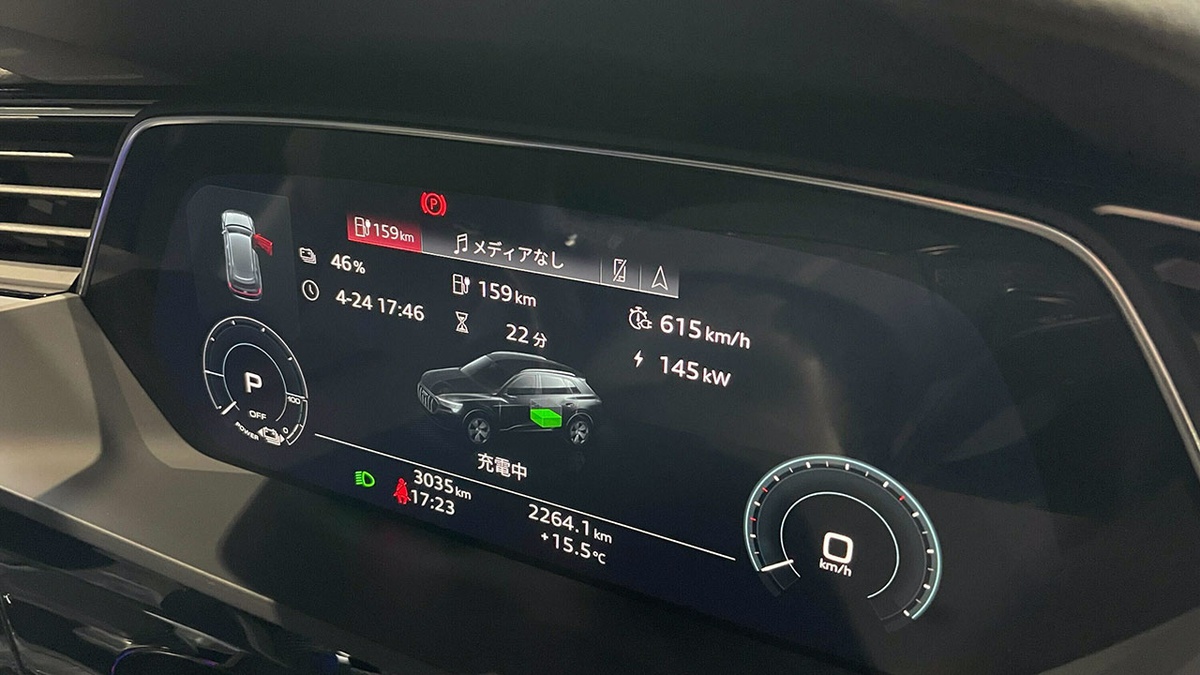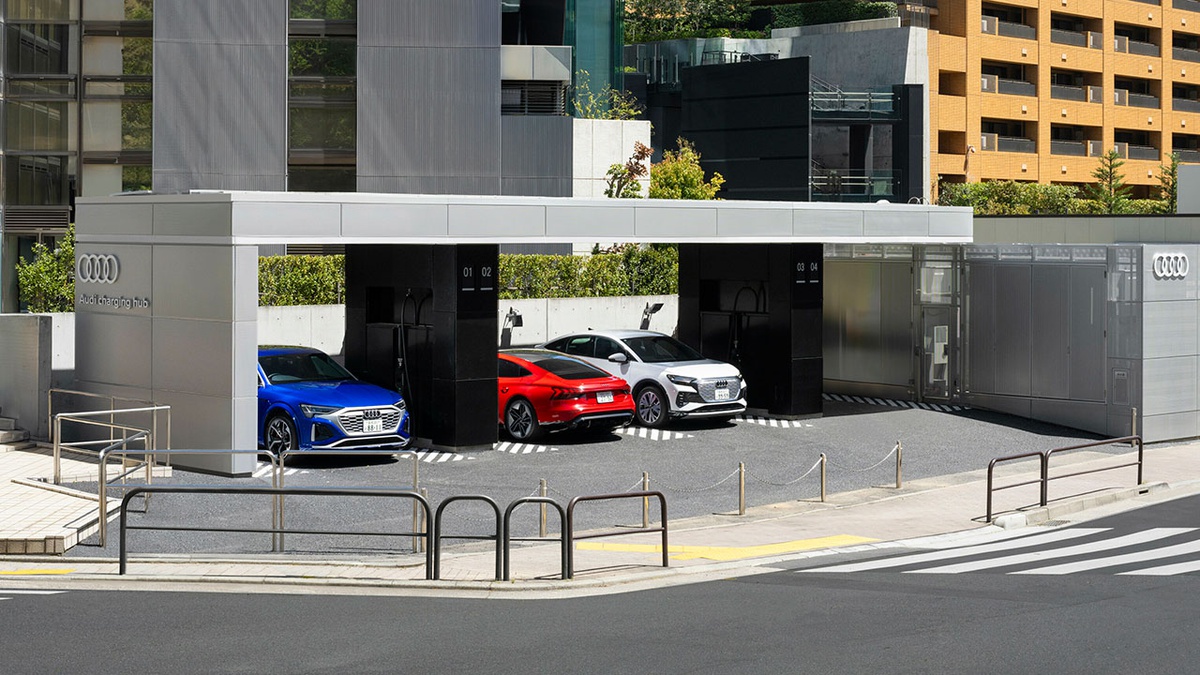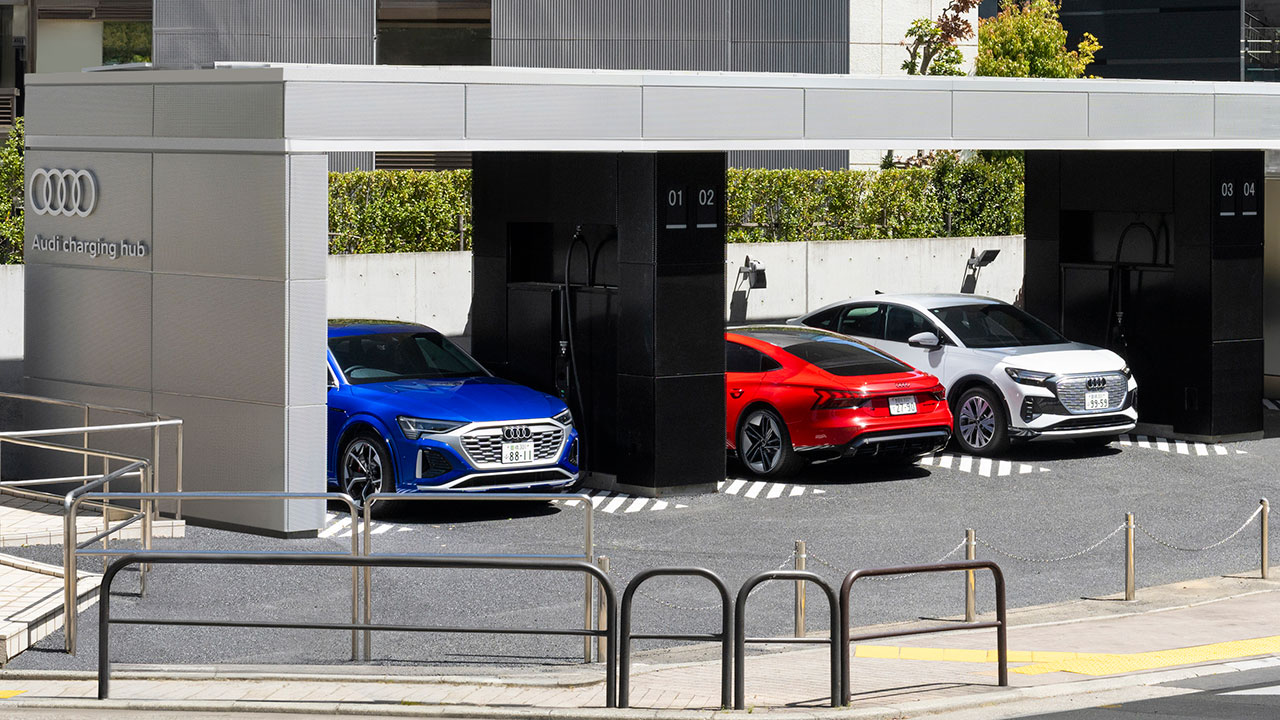Audi is now offering customers in Japan a new charging experience with its charging hub in Tokyo. Located in the Kioich? business district with offices, shopping and cafes nearby, customers can spend their charging time in a variety of ways. The hub is also adjacent to Audi City Kioich?, the German premium brand's electric vehicle showroom in the Japanese capital.
With this concept, Audi primarily serves a target group which cannot charge their cars at home in an urban environment. The compact version of the Audi charging hub in Tokyo has two charging stations with a total of four fast-charging points featuring CHAdeMO charging plugs. Like its European counterparts, the fast-charging station can be used for all-electric vehicles, regardless of brand. In the future, Premium Charging Alliance (PCA) members will be able to reserve a charging point via the PCA app and thus avoid waiting times. PCA is a joint project between Audi and Porsche that aims to expand the fast-charging network in Japan. Around 6,000 PCA members currently have access to more than 400 fast-charging points nationwide.
Customers can charge their electric vehicles with up to 150 kW at the Audi charging hub in Tokyo. This is an excellent figure because the prerequisites for charging power differ between Japan and European countries. For example, the voltage in the Japanese power grid is only 100 volts. Electrical power is calculated as the product of voltage and current. In Japan, the current must be correspondingly high to achieve high charging capacities. This, in turn, requires large cable cross-sections, which are the exception rather than the rule in the country’s power grids that have evolved historically.




Audi is making fast charging possible at its charging hub in Tokyo through a battery storage solution. Consequently, the company is promoting the expansion of the charging infrastructure while enabling higher charging speeds than the average in Japan. The charging points place low demands on the local power grid. The battery stores electricity when there is little load on the power grid - for example, at night. As the battery acts as a buffer storage for direct current, there is no need for a complex infrastructure with high-voltage supply lines and costly transformers. Audi only uses electricity from renewable sources. Green energy also powers the Audi charging hub, mainly generated directly by the photovoltaic system on the charging station’s roof.
Audi is already planning a second charging hub in Tokyo. It is set to be built in the Shiba k?en district, the location of the famous Tokyo Tower. The Four Rings have already opened six Audi charging hubs in Germany, Austria, and Switzerland. The hubs are in Berlin, Frankfurt, Munich, Nuremberg, Salzburg, and Zurich.
Source: Audi

